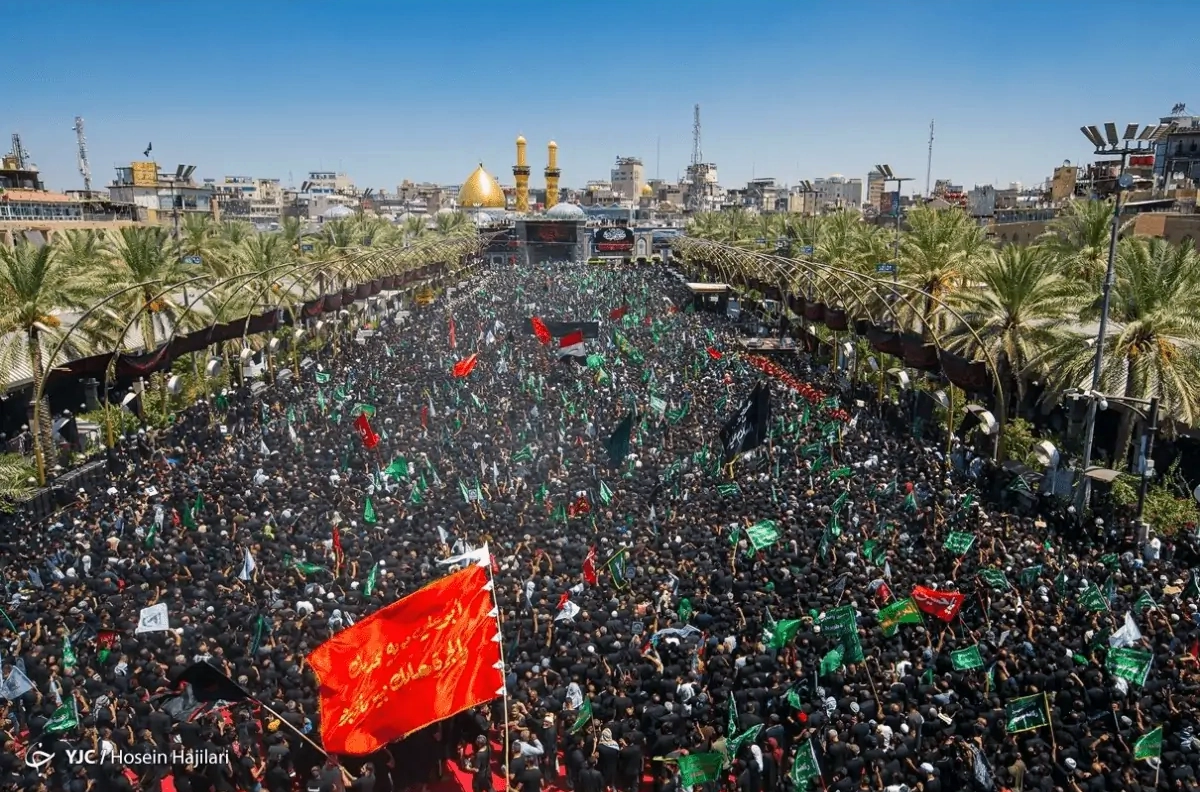
Grand Ayatollah Sayyid Muhammad-Taqi al-Husayni al-Modarresi, spiritual leader of Tarighat Al-Husayn (PBUH)



After the death of Muawiya, the son of Abu Sufiyan, his son Yazid came into power as a Caliph. This was in direct contradiction with the conditions of the truce that Muawiya had signed with Imam Hasan two decades earlier, where the caliphate was meant to return to Imam Husayn. As Yazid came into power and the Article of the Truce was broken, he began demanding allegiance from Imam Husayn in order to get support and legitimacy for his rule. Imam Husayn refused to give his allegiance to Yazid.
However, the situation in Medina became dangerous for the Imam, and he had no choice but to leave the city along with his family for Mecca. When he arrived in Mecca, the Imam began to receive numerous letters from residents of Kufa, many of whom were demanding that Imam Husayn should come to their city so that they could assist him in over throwing Yazid. A great deal of deliberation took place between the Imam and his companions, although most senior figures in Mecca told the Imam to abandon his journey to Kufa, the Imam, with his knowledge and wisdom, believed it was necessary to head towards the city of the people who had written to him and requested for his presence.
Earlier the Imam had also sent his ambassador and cousin, Muslim bin Aqil, to evaluate the situation on the ground in Kufa, and he was reassured that the grounds were ready for his arrival. During the Imam’s journey to Kufa, he stopped at a junction called Jabala, where he was informed about the events that were unfolding in the city of Kufa. Yazid had replaced the previous governor with a more notorious person known as Ubaidullah Ibn Ziyad, who immediately cast terror and fear amongst the loyal supporters of Imam Husayn.
He had also quickly arrested Muslim bin Aqil and executed him. Many of the Kufan supporters of Imam Husayn were sent into shock and terror, eventually retracting back on their requests to the Imam. Some completely abandoned and betrayed their previous show of support. Those few who refused to back down were incarcerated by Ubaidullah Ibn Ziyad. The Imam, nevertheless, decided to move towards Kufa, hoping that if he could enter the city, his supporters may be motivated to rejoin him. However, he was blocked in doing so, by a battalion sent by Ibn Ziyad, led by Hurr Ibn Yazid.
Hurr prevented the Imam from entering the city and did not allow him to return back to Madina either. His battalion forced the Imam, his small group of followers and his family members to move towards a deserted and barren land called Karbala, which they reached by the 2ndof Muharram 61 Hijri. Once the Imam arrived in Karbala, Ibn Ziyad sent a large regiment of soldiers led by Umar Ibn Sa’ad, to confront the Imam. A few days of deliberation and exchange took place until on the 7th Muharram, the army of Umar Ibn Sa’ad blocked access to the river, for drinking water, to the Imam’s camp.
On the 10th of Muharram, the Imam was repeatedly asked to give allegiance and to put his hand into the hand of Ibn Ziyad and ultimately Yazid, the Caliph. The Imam repeatedly refused to accept such an option. He chose martyrdom and death over the humiliation of having to give allegiance to the suppressive tyrant. An all out battle ensued, resulting in the martyrdom of Imam Husayn, along with his family and his companions in the most brutal of manners. The womenfolk and children were later taken to Damascus in the presence of Yazid, who rejoiced over his actions and showed no regret over his decisions.
Reference:
Al-Islam.org. (2022). The Story of Imam Husayn (A). [online] Available at: https://al-islam.org/media/story-imam-husayn.